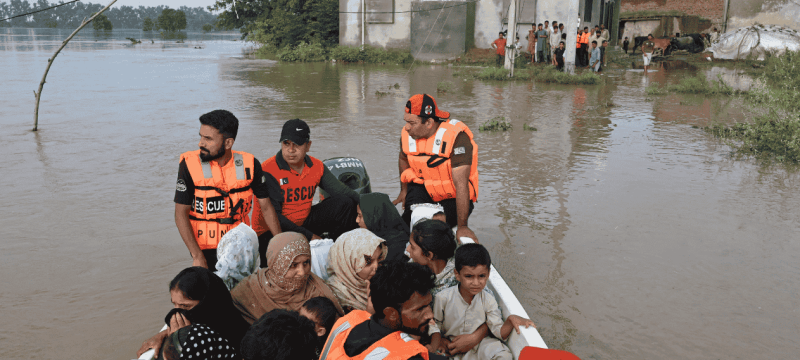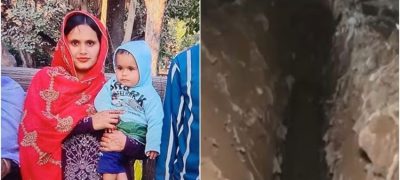The flood situation in Pakistan’s Punjab province has escalated following India’s decision to release additional water into the Sutlej River. This move has exacerbated an already dire situation, with water levels reaching unprecedented heights.
Rising Waters and Escalating Crisis
The Sutlej, along with the Chenab and Ravi rivers, has surged to “exceptionally high” levels, threatening vast swathes of land. The Provincial Disaster Management Authority (PDMA) has warned of more torrential rain, which could lead to urban flooding across Lahore, Gujranwala, and Gujrat
Cross-Border Water Release
India’s National Disaster Management Authority confirmed that the new spell of monsoon rains is expected to persist for another 24 to 48 hours, adding that floodwaters are likely to surge into the Indus river, posing a threat to areas in southern Sindh province
Humanitarian Impact
The floods have affected over 1.5 lakh (150,000) people across the state, causing widespread disruptions and damage. In response to the crisis, Prime Minister Narendra Modi is scheduled to visit Punjab on Tuesday to assess the situation and possibly oversee relief efforts
Government Response
The Punjab government has allocated Rs 71 crore for immediate relief, while MLAs pledged one month’s salary and departments contributed additional funds. However, Finance Minister Harpal Singh Cheema criticized the BJP-led central government for not providing adequate support, alleging no response to CM Bhagwant Mann’s request for Rs 60,000 crore in pending dues
Relief Operations
Milkfed Punjab (Verka) and its associated Milk Unions, in collaboration with the state’s cooperation department, have initiated extensive relief and recovery efforts. The disaster has particularly affected the districts of Amritsar, Ferozepur, Abohar, Fazilka, and Jalandhar, leaving about 3.5 lakh people in dire need of essential supplies
Farm groups and social organizations have urged philanthropists and volunteers to temporarily halt the distribution of dry rations to impacted areas. The primary concern is that aid is not reaching those in remote villages, often only accessible by boats or tractors. Groups like BKU Ekta Ugrahan and BKU Krantikari believe it’s essential to wait for floodwaters to recede before assessing actual needs and providing targeted aid
In Other News Read More : Punjab launches floating boat clinics in flood zones







